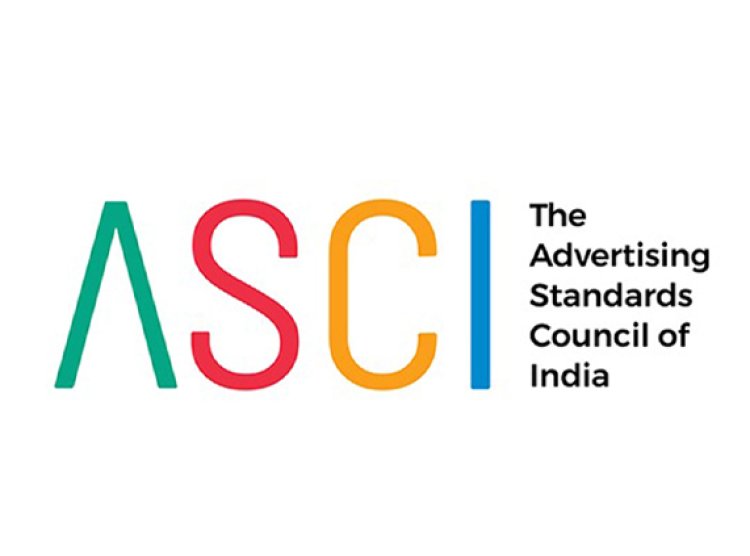Challenges and Opportunities for EdTech Advertising: ASCI Report
Suggests the RAISE model, which will assist marketers and creative professionals in reviewing concepts at the ad's conception stage

A thorough study on the effects of advertising in the education technology sector (EdTech) on parents and students has been published by the Advertising Standards Council of India (ASCI). The report aims to explain the difficulties and possibilities for advertising in the EdTech sector. The report also outlines strategies the industry can use to craft a more responsible narrative and steer clear of the opportunistic advertising that many see as problematic.
It is crucial that the sector's advertising does not detract from its enormous potential to address India's infrastructure and educational challenges. EdTech holds great promise in this regard. The study identifies opportunities and challenges and suggests a framework that could lead advertisers to more balanced advertising. It was conducted with the active participation of both industry and non-industry stakeholders.
ASCI, Sprint Studio.ai, and UNICEF collaborated on the EdNext study as research partners and knowledge partners, respectively. A large group of stakeholders, including parents, students, policymakers, educationists, child development experts, as well as industry representatives from the marketing and creative fields, examined a total of 100 advertisements for edtech can be found in print, on TV, online, and in static media. The cities of Delhi, Bangalore, Indore, Kanpur, Patna, Kolhapur, Warangal, and Bardhaman were all included in the study.
The investigation turned up:
- · Ads have a significant influence on parents' choice of an educational technology platform; 49% of parents select their platforms based on advertising.
- · Like traditional education advertisements, Ed-Tech advertisements heavily emphasize grades and rankings. The subjects portrayed were mostly math and science.
- · While 81% of parents believe in EdTech advertisements, 73% believe that they put too much pressure on students to perform well in their studies.
- · The endorsers and role models didn't come from the academic world.
- · These advertisements contain gender, physical appearance, and motherhood stereotypes.
Positives were also noted in the findings. The following were a few of the main benefits noted:
- · Parents were portrayed in advertisements as students' supportive partners, serving as positive role models for progressive parenting (21 out of 23 ads)
- · Ads that emphasized conceptual learning were regarded as progressive and enjoyable by parents and professionals alike.
The EdNext study suggested a framework to elevate the conversation mindfully surrounding EdTech. The 'RAISE' framework offers stakeholders a set of filters through which to assess the creatives and create messages that might be viewed as more progressive. Marketers and creative professionals can review concepts at the ad's conception stage by using the checklist guide provided in the framework.
The framework is built on five guiding ideas, including:
R- Stands for the student's relationship to learning.
A - Authenticity of circumstances, commitments, and assertions
I - Characters should be inclusively represented to show diversity in gender, age, physical characteristics, personality types, learning styles, and pace, as well as regional inclusion.
S - Spectrum of pedagogy, which provides details on instructional strategies and how they affect all aspects of learning outcomes.
E - Excellence markers will put more emphasis on overall development than ranks and marks as a metric for success.
As the CEO and Secretary General of ASCI, Manisha Kapoor noted, "EdTech has emerged as a very significant industry in recent years, particularly in the pandemic era where parents engaged with these businesses to supplement their children's education." Ed-Tech has the potential to revolutionise Indian education by resolving some fundamental infrastructure and content issues. However, it is essential to make sure that advertising is responsible and does not take advantage of these vulnerabilities, given the specific asymmetry between powerful organisations and weak parents and students. The opportunity for edtech advertising to create a positive, forward-looking narrative that inspires learners to be confident and multifaceted is enormous.
Mayank Kumar, Chair at the Indian Ed-tech Consortium and Co-Founder of UpGrad, stated: "The EdNext report highlights the need for raising the bar on advertising in the industry and provides a roadmap on how that can be accomplished. It also sheds light on the sheer size of the EdTech sector. The report also reveals that students, parents, and teachers broadly accept the advantages of EdTech products. The extensive research we conducted with ASCI will give the industry a clearer understanding of how it can profit from the responsible advertising it already strives for.
As co-chair of the Indian Ed-tech Consortium and co-founder of BYJU'S, Divya Gokulnath noted, "The EdNext report highlights that almost all parents are appreciative of the ads which show children enjoying the process of learning." We place a high value on establishing solid, long-lasting relationships based on fundamental values. Although it's common for advertisers to highlight the best results obtained by their users, the EdTech sector always aims to present a fair picture. We must change as a young industry that is constantly developing if we want to ensure that learning is efficient for everyone. As we develop and grow, this initiative by ASCI will assist us in creating even more ethical and successful advertising campaigns.












